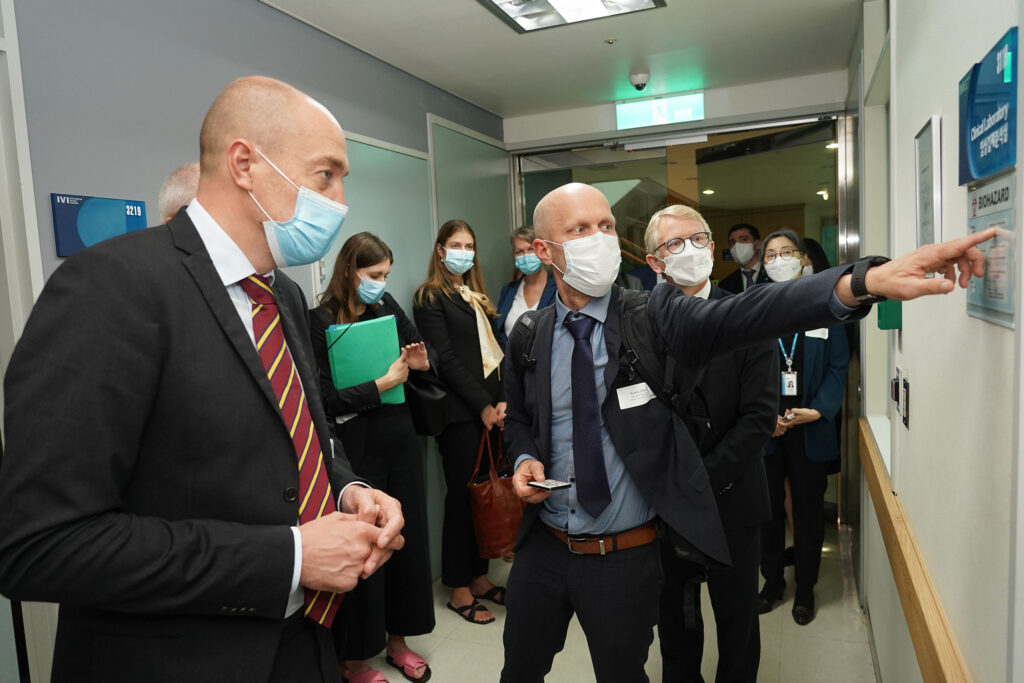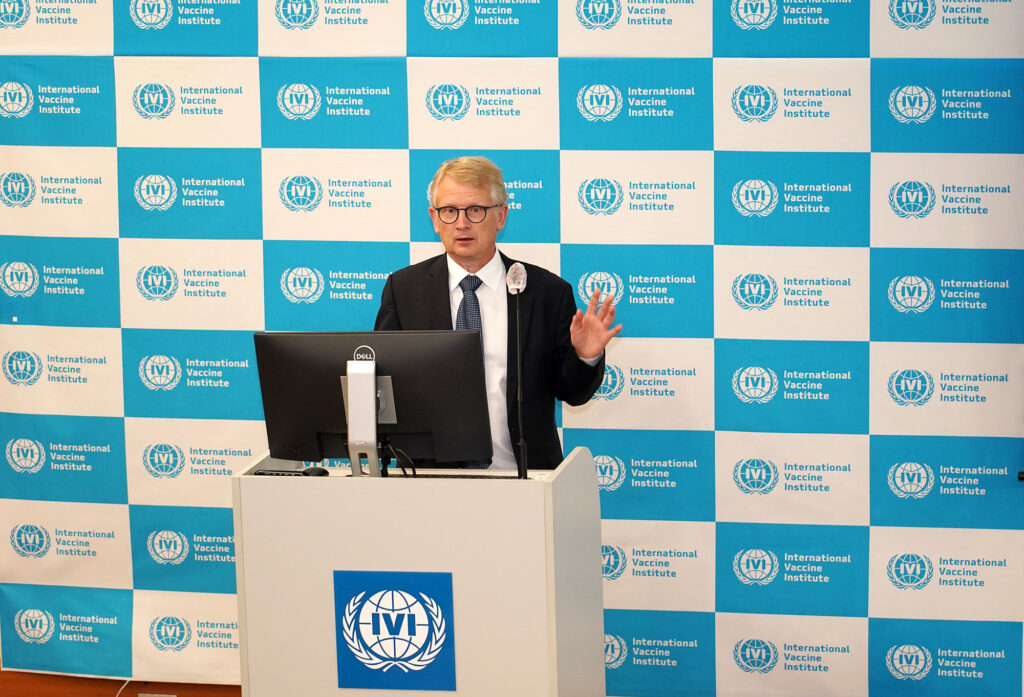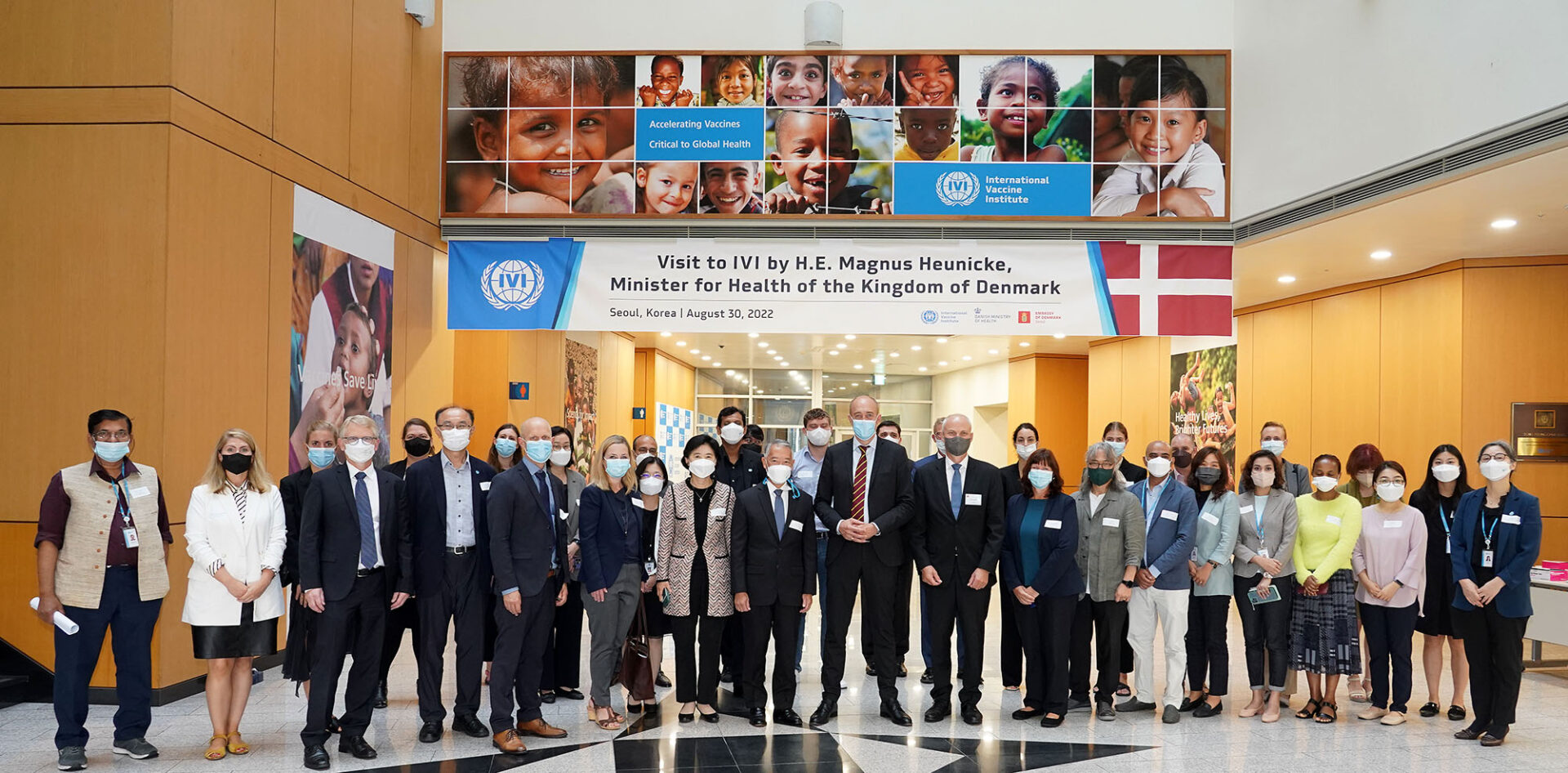Together with Danish Minister for Health, Magnus Heunicke, representatives from Statens Serum Institut and Aarhus University, our Scientific Director Dr. Robert Skov attended several high-level meetings in South Korea and Japan that sought to strengthen bilateral efforts to reduce antimicrobial resistance (AMR) and scope future opportunities for collaboration.
On 30th August 2022, the delegation visited the International Vaccine Institute (IVI), an international organisation based in Seoul with a mission to discover, develop and deliver safe, effective and affordable vaccines for global health. During the visit, delegates met with Dr. Jerome Kim, Director general of IVI, took a tour of the IVI facilities, and attended an AMR, Infectious Diseases and Vaccine Development seminar.

The seminar focused on the global AMR agenda, adopting a One Health approach to infectious disease control, pandemic preparedness and lessons learned from COVID-19. Dr Skov presented ICARS’ unique model of working with low- and middle-income countries to co-develop cost-effective and context-specific solutions to mitigate AMR, and presented two examples of projects currently in implementation in Kyrgyzstan and Georgia.
Other distinguished speakers included:
- Satyajit Sarkar, Research Scientist on AMR Policy & Advocacy, IVI
- Henrik Ullum, Executive Director, Statens Serum Institut
- Soojin Jang, Head of Antimicrobial Resistance Laboratory, Institut Pasteur Korea
- Yun Cheol Heui, Seoul National University
- Tina S. Dalgaard, Aarhus University

ICARS’ close relationship with IVI already has a long history, and later this year we will again co-host a webinar to scope out the challenges and opportunities for broadening the uptake of vaccines in LMICs and to discuss the added value of advocating for them as an AMR related solution.
As most LMICs are currently engaged in developing the second editions of their AMR NAPs, the webinar is a timely event calling for decision-makers to consider vaccines as a valuable ‘AMR-sensitive’ intervention. To achieve this goal there is a need for developing a comprehensive and robust ‘real-world’ research agenda, which builds on the most current evidence regarding the added value of vaccines in mitigating and containing AMR, including their acceptability, cost-effectiveness, advocacy themes, and messaging for education and awareness among health professionals and communities in LMICs. The webinar will therefore initiate the dialogue for actions that identify research, knowledge, and implementation gaps, as well as opportunities, for using vaccines to reduce the emergence and spread of AMR.
In Japan, amongst other productive meetings, Dr. Robert Skov participated in an AMR seminar attended by Danish Minister for Health, Magnus Heunicke and Japanese Assistant Minister for Global Health and Welfare, Dr. Eiji Hinoshita. The event provided an opportunity to discuss the global AMR challenge amongst a panel consisting of Japanese agencies, as well as pharma and diagnostic industry partners from Denmark and Japan. The meeting was a chance to introduce overlapping efforts to mitigate AMR and explore potential collaborative opportunities to maximise impact.

